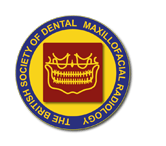Core curricula in Dental Radiography and Radiology for the Dental Team
Core curricula in Dental Radiography and Radiology for the Dental Team (Download)
The original core curriculum in Dental Radiography and Radiology for undergraduate dental students was approved by the Council of the British Society of Dental and Maxillofacial Radiology (BSDMFR) in October 1993. It received wide circulation following inclusion as Appendix C of Guidelines for Radiology Standards for Primary Dental Care1. This curriculum was subsequently updated in 2002 and 2008. In addition a separate curriculum for Dental Care Professionals was approved in 2008.
Following the GDC review of the undergraduate curriculum and publication of the document Preparing for practice - Dental team learning outcomes for registration, in December 2011, which included changes in the scope of practice of therapists and hygienists allowing direct patient access, the BSDMFR Council decided that a further review of their curricula documents was required.
This latest (2015) version brings together the 2008 curriculum for dental students and the 2008 curriculum for Dental Care Professionals undertaking radiography as IR(ME)R operators. In addition, this new version acknowledges the GDC’s decision to allow certain Dental Care Professionals, namely therapists and hygienists, to act as IR(ME)R referrers, IR(ME)R practitioners and also as IR(ME)R operators who can report radiographs. Prior to 2014, training programmes for these particular Dental Care Professionals had only included training to enable them to act as non-reporting IR(ME)R operators. This version also includes the curriculum for dental nurses acting as IR(ME)R operators but not undertaking radiography.
StR Training
Training follows the curriculum set by the GDC.
Entry requirements
Entry to a Dental and Maxillofacial Radiology training programme in the UK may follow the satisfactory completion of:
• a two year period of Foundation Training which may include a period of vocational training (VT), but should also include a period of training in secondary care in an appropriate cognate specialty
- the possession of the FDS, MFDS or MJDF of the UK Surgical Royal Colleges or an equivalent qualification
- candidates without FDS, MFDS or MJDF may be admitted to a programme but will normally be expected to possess an appropriate higher degree
and/or to have had appropriate experience in dental and maxillofacial radiology or a related discipline.
Duration of training
The Royal College of Radiologists anticipates that four years would normally be required to satisfactorily complete the radiology curriculum to the required depth and breadth, as identified in Schedule 3 of the General and Specialist Medical Practice (Education, Training and Qualification) Order 2003, and all provisional CCST dates should be set at four years (48 months) in the first instance.
The CCST in Dental and Maxillofacial Radiology will be awarded on the recommendation of the local Postgraduate Dental Dean following: • evidence of satisfactory completion of the Dental and Maxillofacial Radiology curriculum and the minimum training period
Dental & Maxillofacial Training Courses
The BSDMFR holds two meetings each year: The Scientific Meeting and the Radiography Study Day. Details of our upcoming meetings can be found on our website under the Events tab.
BIR Head and Neck Ultrasound Workshop
This one-day workshop covers an intuitive approach to ultrasound of the head and neck that can be implemented in daily practice including approach to cervical lymph node, salivary, thyroid, laryngeal and oropharyngeal ultrasound as well as intraoral ultrasound examination and fine-needle aspiration and core biopsy technique
This workshop currently runs once a year, and is organised by the BIR and details can be found on their website. Please note that there are limited places for this event
BIR/BSHNI Head & Neck Imaging refresher Course
The British Society of Head and Neck Imaging (BSHNI) in conjunction with the British Institute of Radiology (BIR) have been running a one-day refresher course on imaging of the head and neck. These very popular courses are recommended not just for radiologists, but also for those who are involved in head and neck imaging such as maxillofacial trainees.
Head & Neck Imaging: Annual Meeting of BSHNI and RSM
This joint meeting is one of the largest meetings of the Royal Society of Medicine (RSM) and it brings together an interdisciplinary team of experts to promote a shared understanding of current and emerging diagnostic techniques for the head and neck.
Cone Beam CT Courses
As CBCT is not currently taught during BDS undergraduate training to a level that ensures newly qualified clinicians understand how to appropriately refer and/or interpret CBCT scans, it is recommended that further postgraduate training is undertaken by all personal involved with dental CBCT imaging. The European Academy of DentoMaxilloFacial Radiology published their position paper in 2014 which described the two levels of continuous education necessary for dentists to appropriately utilise CBCT, and it is this model that CBCT courses in the UK work to.
BSDMFR has previously run level 1 and level 2 courses in conjunction with other societies and Royal colleges. Details on future events will be detailed under the Events tab of our website.
Dental Nurses & Dental Therapists/Hygienists
The British Dental Association - Dental Radiography for DCPs
This 8 week course will help you learn:
- how to use X-rays safely and
- how to take common dental radiographs.
The course prepares you for the BDA Qualification in Dental Radiography, a nationally-recognised qualification that qualifies you to take radiographs unsupervised.
The National Examination Board for Dental Nurses
The NEBDN qualifications are delivered through a network of accredited course providers throughout the United Kingdom. All our accredited course providers are formally audited and monitored for quality assurance purposes and must demonstrate their continued conformity to NEBDN Standards. If you are a qualified dental nurse interested in progressing your career through further qualifications, our accredited course providers should be your first port of call. The list of accredited providers is organised by county.
